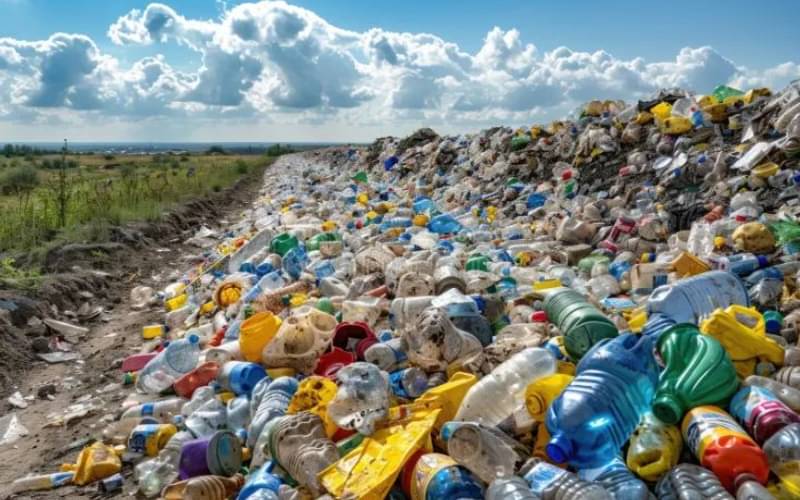India tops plastic waste: 9.3-million-tonnes a year
In a recent study published in Nature, researchers led by Joshua W Cottom created an inventory of plastic emissions that highlighted the challenges of managing plastic pollution. This research utilised machine learning to analyse waste management practices around the world, revealing that simply managing plastic waste was not enough to tackle the problem. Instead, it suggested the need for significant reductions in the production and consumption of new plastics made from fossil fuels.
19 Sep 2024 | By Anushka Chourasia
Cottom and his team’s inventory covered emissions from about 50,000 municipalities across different countries, including India, which contributes to a fifth of global plastic pollution. The study found that India generates approximately 9.3-million-tonnes of plastic pollution annually, significantly more than other countries such as Nigeria and Indonesia. This includes roughly 5.8-million-tonnes burned each year and another 3.5-million-tonnes released into the environment as debris.
They identified five main sources of plastic emissions: uncollected waste, littering, waste collection systems, uncontrolled disposal, and rejected products from sorting processes. Notably, uncollected waste accounted for 68% of global plastic emissions, particularly in low- and middle-income countries where waste management systems were often lacking. In India, the problem of unmanaged waste is exacerbated by inadequate infrastructure and reliance on informal waste management systems.
Cottom's inventory provided a valuable baseline for understanding global plastic emissions. It highlighted that without addressing the root causes—specifically, the overproduction of new plastics—efforts to manage plastic waste would fall short. The study emphasised that effective policies should include targets for reducing both plastic production and consumption, along with improving waste management practices.
As global leaders prepare for negotiations at a United Nations meeting in Busan, South Korea, scheduled for 25 November 2024, the findings from this study are particularly relevant. The upcoming treaty aims to address plastic pollution comprehensively—from its design and production to its use and disposal. However, some stakeholders sought to limit the treaty's focus only to managing plastic waste.
Cottom and his team argued that such a narrow approach would not be effective and could lead to further environmental issues. For instance, managing uncollected waste through uncontrolled landfills or open burning could worsen problems like microplastic pollution and greenhouse gas emissions. Currently, around 5.8 million tonnes of plastic solid waste is openly burned each year in India, contributing significantly to air pollution and health issues associated with toxic emissions from burning plastics.
Matthew MacLeod from Stockholm University pointed out that "waste management alone is unlikely to be a safe and effective response" to plastic pollution. The upcoming negotiations in Busan will offer an important opportunity for countries to commit to strategies that not only manage existing plastic waste but also reduce future production.


